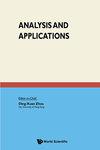Learning theory of minimum error entropy under weak moment conditions
IF 2.4
2区 数学
Q1 MATHEMATICS
引用次数: 9
Abstract
Minimum error entropy (MEE) is an information theoretic learning approach that minimizes the information contained in the prediction error, which is measured by entropy. It has been successfully used in various machine learning tasks for its robustness to heavy-tailed distributions and outliers. In this paper, we consider its use in nonparametric regression and analyze its generalization performance from a learning theory perspective by imposing a [Formula: see text]th order moment condition on the noise variable. To this end, we establish a comparison theorem to characterize the relation between the excess generalization error and the prediction error. A relaxed Bernstein condition and concentration inequalities are used to derive error bounds and learning rates. Note that the [Formula: see text]th moment condition is rather weak particularly when [Formula: see text] because the noise variable does not even admit a finite variance in this case. Therefore, our analysis explains the robustness of MEE in the presence of heavy-tailed distributions.弱矩条件下最小误差熵学习理论
最小误差熵(MEE)是一种将预测误差中包含的信息最小化的信息论学习方法,预测误差用熵来度量。由于其对重尾分布和异常值的鲁棒性,它已成功地应用于各种机器学习任务中。在本文中,我们考虑了它在非参数回归中的应用,并从学习理论的角度分析了它的泛化性能,通过在噪声变量上施加一个[公式:见文本]阶矩条件。为此,我们建立了一个比较定理来表征超额泛化误差与预测误差之间的关系。利用松弛的Bernstein条件和集中不等式推导出误差界和学习率。请注意,[公式:见文]的矩条件是相当弱的,特别是当[公式:见文],因为噪声变量甚至不承认在这种情况下的有限方差。因此,我们的分析解释了MEE在存在重尾分布时的鲁棒性。
本文章由计算机程序翻译,如有差异,请以英文原文为准。
求助全文
约1分钟内获得全文
求助全文
来源期刊
CiteScore
3.90
自引率
4.50%
发文量
29
审稿时长
>12 weeks
期刊介绍:
Analysis and Applications publishes high quality mathematical papers that treat those parts of analysis which have direct or potential applications to the physical and biological sciences and engineering. Some of the topics from analysis include approximation theory, asymptotic analysis, calculus of variations, integral equations, integral transforms, ordinary and partial differential equations, delay differential equations, and perturbation methods. The primary aim of the journal is to encourage the development of new techniques and results in applied analysis.

 求助内容:
求助内容: 应助结果提醒方式:
应助结果提醒方式:


